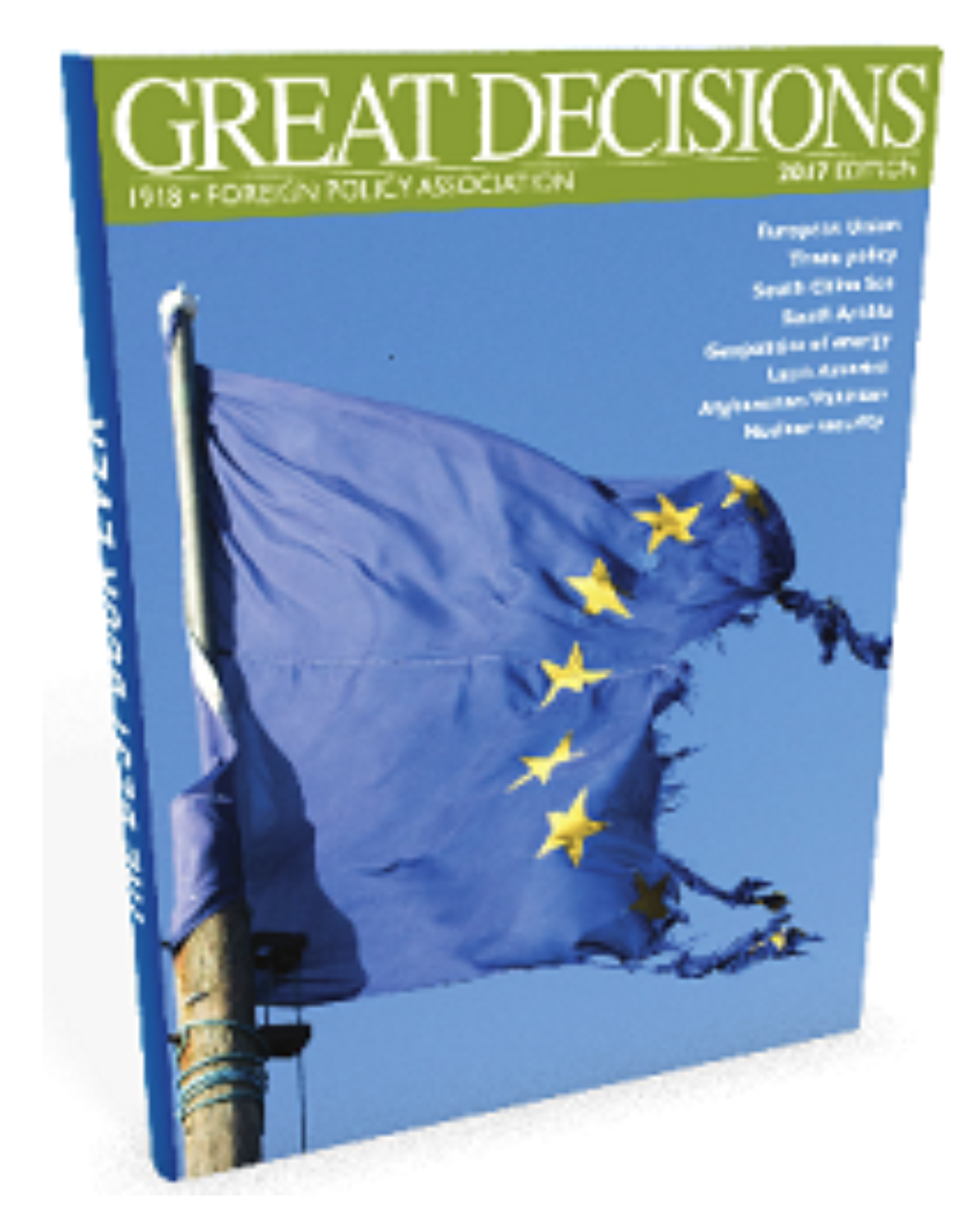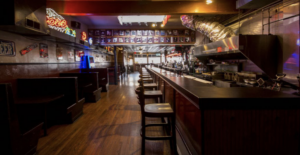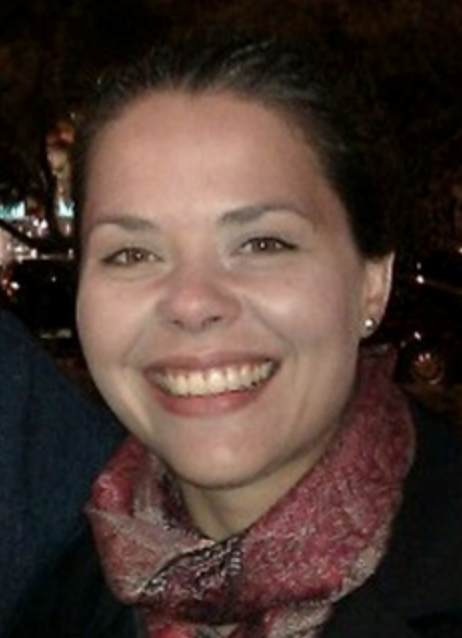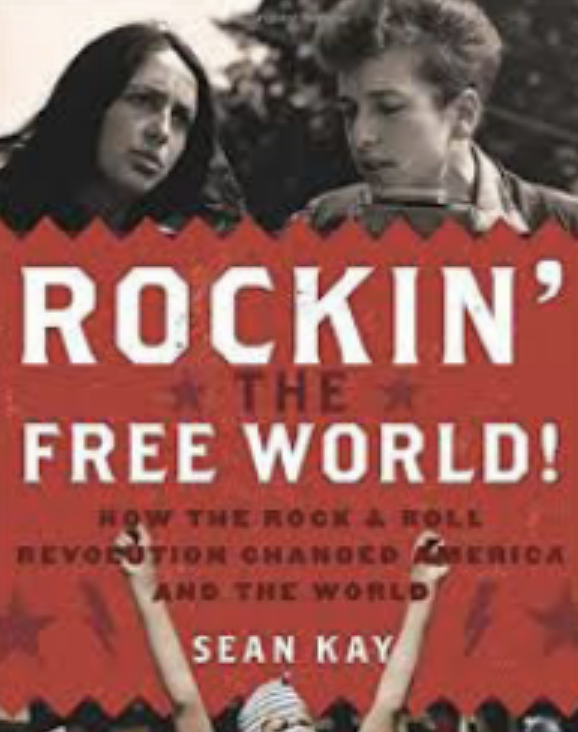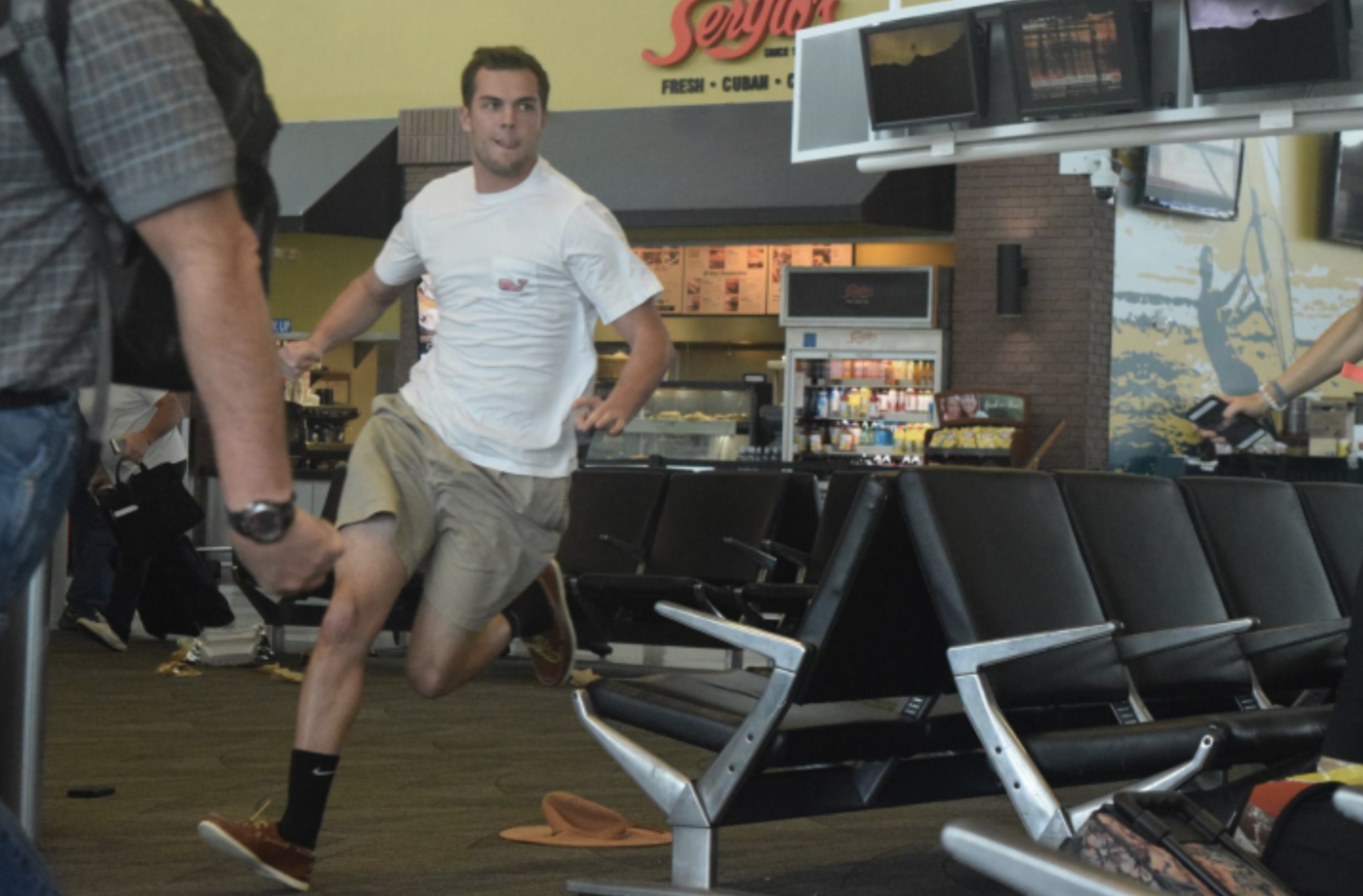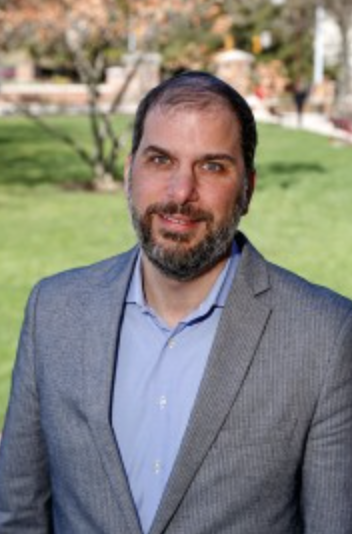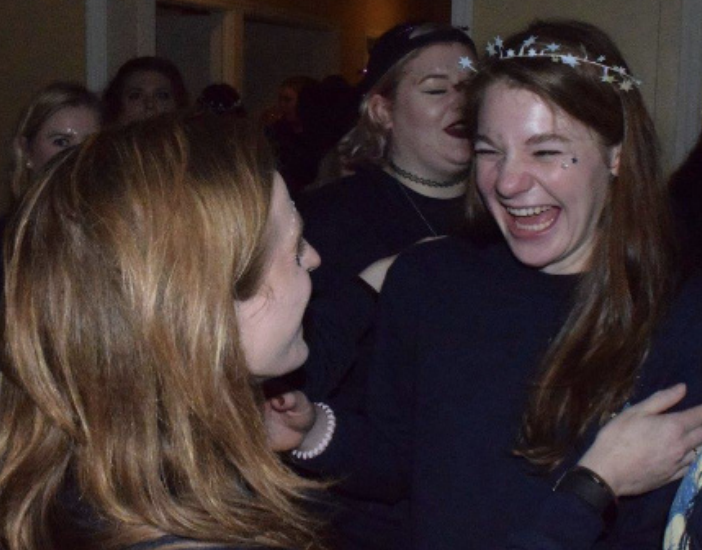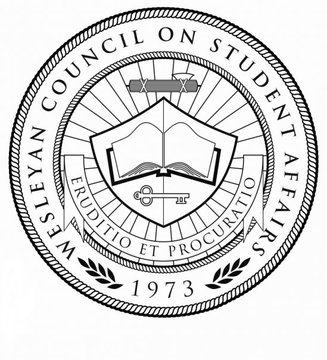By Sara Hollabaugh, Online Editor
On Jan. 6, 2017, Paul Kostyu and Chuck Stinemetz found themselves part of a national news story.
Kostyu, associate professor of journalism, was traveling back from Cuba and Stinemetz, provost, was on a weekend vacation with his wife, Annie, when 26-year-old Esteban Santiago Ruiz killed five civilians at the airport.
Stinemetz said he and Annie landed in Florida on a Delta flight in Terminal 2.
“The shooting took place in the luggage area on the first floor,” Stinemetz said. “We had stopped at the escalator that went from the second floor to the luggage area when we heard the first shots below us.”
Stinemetz said they took shelter in a restroom before running out of the terminal to the street outside.
“Outside of the terminal, people were trying to come to terms with what was taking place,” Stinemetz said. “Some were crying, others were taking pictures, people were just trying to figure out what they should do.”
Stinemetz said he and his wife didn’t know what was going on, except that there was a shooting.
“We had heard the gunshots and saw people who were bleeding after they were shot,” Stinemetz said. “Police cars and ambulances with lights on were everywhere, [and] police with guns drawn were rushing in and trying to get people to move away from the scene.”
Having arrived in Fort Lauderdale at 11:45 the morning of the shooting, Stinemetz said he and his wife were at the airport until 10 p.m. where they were taken to Port Everglades by taxi.
Stinemetz said they eventually got to their hotel at 11:45 p.m. in Fort Lauderdale.
Kostyu was waiting for his flight back to Columbus, which was scheduled to board within 30 minutes in Terminal 1, when he learned there was a shooting in the next terminal.
Due to nearly 30 years of journalism experience, Kostyu immediately took to his instincts and began taking photos of the scene around him.
Outside on the tarmac, after being moved there, Kostyu said he took more photos.
“I got some stern looks … I got some people saying they didn’t want their photographs taken and I respected that,” Kostyu said.
Kostyu didn’t mention he was a journalist until people approached while he was working on photos on his computer.
“I didn’t say anything [about being a journalist] … a couple people asked when I was sitting down working on the stuff and they came up to me.”
In addition to taking photos, Kostyu frequently posted updates on his Facebook page.
Having seen his updates, Kostyu said he believes a former student of his who works for the Columbus Dispatch asked to use his photos and may have gotten in touch with the Associated Press (AP).
“I got called from AP Chicago, not from Ohio,” Kostyu said. “This was the regional guy … the photo editor from Chicago.”
Kostyu said he told the AP he would send them photos when he got Wi-Fi.
After being taken to a Red Cross shelter in Fort Lauderdale, Kostyu sent them five to seven photos, all taken from a digital camera.
After spending a night at the Red Cross shelter and another in a hotel in West Palm Beach, Kostyu arrived back to Columbus Monday, Jan. 9 at around 12:30 a.m..
“My wife wanted me home as soon as possible and I told her [it was] just not possible,” Kostyu said. “Everybody was booking flights. And that area is filled with a cruise ship dock so they have [people] constantly coming in and out.”
Minus the delay in getting home, Kostyu said it didn’t cost him anything.
“Southwest didn’t charge me for redoing the flight, but it was kind of a hassle,” Kostyu said. “[However,] spending the night in a Red Cross shelter was an interesting thing that I had never done before.”
For Kostyu, the minor inconvenience he experienced was nothing in comparison to what those who lost their loved ones were experiencing.
“[I overheard] ‘Oh, this is so mishandled, blah blah blah, just these general complaints,” Kostyu said. “But an armed deputy heard some people complaining and she said, ‘Can I have your attention?’”
Kostyu said she acknowledged that it was an inconvenience, but had a message for those complaining to acknowledge that people had lost their lives and others their loved ones.
“It just struck me that it was exactly the right thing that she should have done,” Kostyu said.
“It was an inconvenience for us but you know, five people lost their lives, others injured and what were were doing,” Kostyu said. “We weren’t under any danger and the airport had to deal with roughly 4,000 people, it doesn’t just turn over like that.”
“I got to see humanity as its worst and its best,” Kostyu said “I found that interesting as an observer and journalist.”
In addition to Kostyu, Stinemetz reflected on the experience.
“I saw really terrified people who were just thankful to be alive, that still tried to put the best face on things and help each other as much as possible,” Stinemetz said. “In particular, people tried to help those with children and the very elderly.”
Stinemetz said he has thought about what could have happened if he and his wife had not stopped at the top of the elevator.
“The randomness of it all is probably the most frightening aspect. Acts of terror are not predictable,” Stinemetz said. “Why Fort Lauderdale? Why that Friday? Why did the Air Canada flight come into the same terminal as our Delta flight?”
“We all would like to think that we control our lives, and something like this makes you question if you have control,” Stinemetz said. “That, in turn, makes a person feel very uneasy and I think can lead to a sense of instability which is what these types of events are trying to accomplish.”
